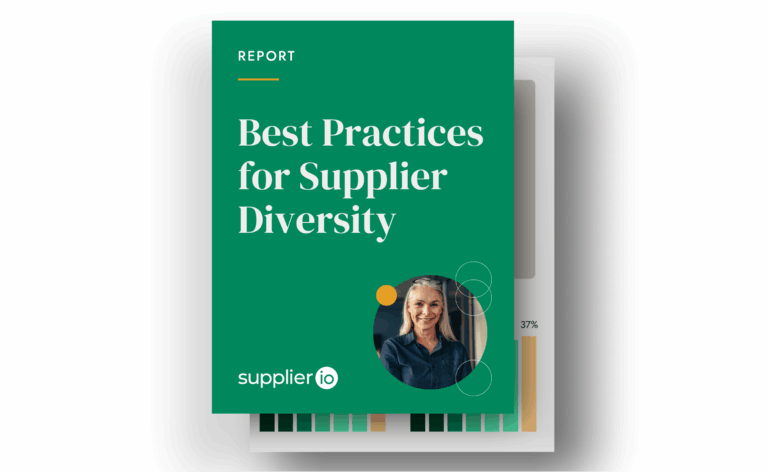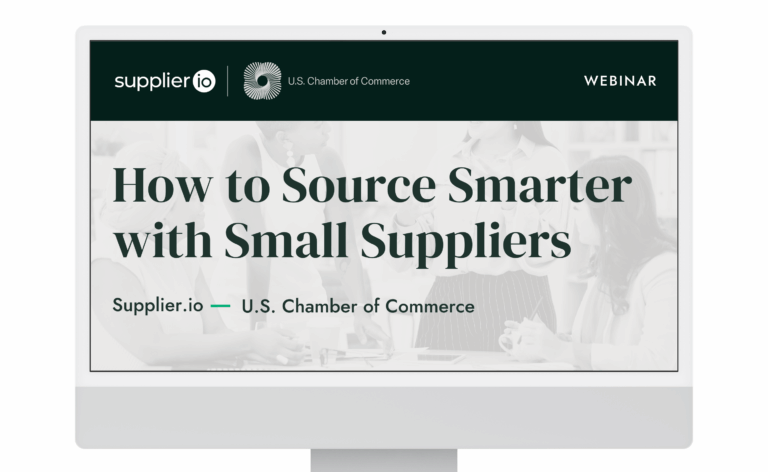Why supplier diversity benchmarking is so important
Is benchmarking really that helpful? It can be! 3 ways you can use it to help your program.

Do you know how your program is really doing? Do you have an accurate and up to date idea of your industry peer’s progress? If the answer to either of those questions is “no”, it might be time to give benchmarking a try.
Benchmarking is the essential strategy for your supplier diversity program that could make the difference between falling short of your goals and excelling more than you even thought possible. And yet, despite how important benchmarking is for goal-setting and perspective, many programs either don’t utilize this strategy or are using bad data to benchmark against.
What can proper benchmarking do to advance your program? Here are three key benefits:
Lend credibility to your program
Most supplier diversity programs have two main sources to pull from when they do benchmarking: self-reported data from businesses, and their own previous results. Both of these options only give you a limited idea of your program’s real success.
Self-reporting can be rife with inaccurate or outdated information, especially if the companies are using manual tracking and processes. If you benchmark and build goals around information that ends up being incorrect, this could seriously harm your credibility and could lead your executive team to being more risk-averse in regard to your program.
Using objective, actual spend data is the simplest way to assure the data you’re benchmarking against is the most up-to-date and to protect your program’s reputation.
Learn to work smarter, not harder
Time is of the essence when it comes to expanding your program and making a difference in your community, and benchmarking can help you make the most of it.
When you benchmark against objective, detailed spend data, you have a much clearer picture of where you’re exceeding or falling behind your peers. You can also identify specific commodity areas for possible new spend, as well as diversity groups you can support more.
You may be surprised to see that your spend amount in a commodity like food services is far lower than your industry peers. Now you know to focus your efforts on, for example, adding a diverse supplier to each food service RFP you send out, instead of creating spend goals for a commodity where your spend is actually higher than your industry peers.
Build a business care for investing in your program
Benchmarking with objective, actual spend data lets your organization know that your supplier diversity program is worth investing in. Your executive leadership team will expect to see what your goals are for your program, and they expect that those goals are based on hard metrics and accurate data. When you benchmark against your industry peers, you can have clear, actionable goals to present to your leadership team, and they can have more confidence investing in your program, since they know exactly where their resources will be going.
Conclusion
If you’re ready to start benchmarking, Supplier.io is here to help! We’ve just released our 2023 Benchmarking Report, filled with the accurate and objective data you need to help you start your journey and gain key insights to improve your program.
Want to get deeper into the results of your industry? Contact our sales representatives to schedule a demo of our updated Benchmarking Product, and learn how we can help you set clearer goals and get the results you need.




